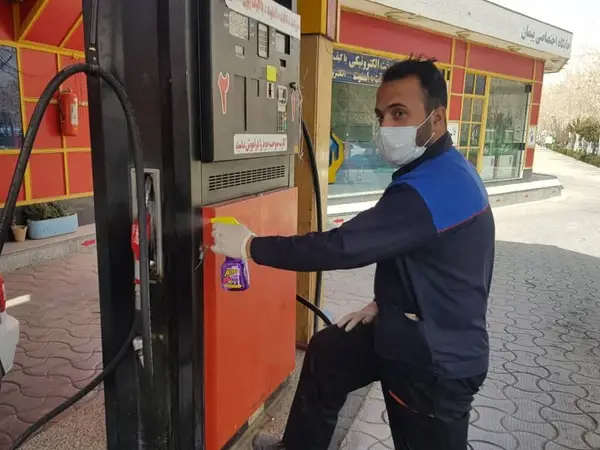Iran’s government is reducing the allocation of cheap gasoline in what appears to be a shortage of fuel and a possible plan to raise government-controlled prices.
Reports in newspapers, websites and in social media indicate that the President Ebrahim Raisi’s administration might be pondering a new round of gasoline price increase, as some say Iran’s daily production has dropped from 107 million liters to 101 million.
The government that controls the distribution of energy and fuel in the country has been offering perhaps the world’s cheapest prices to consumers, with subisdized gasoline going for as little as 22 US cents a gallon.
A similar move to raise prices in November 2019 led to days of nationwide protests and the killing of at least 1.500 protesters.
A hardliner political figure, former lawmaker Hossein-Naghavi Hosseini, said this week that former President Hassan Rouhani should be put on trial for the 2019 nationwide protests.
At the time, the government was criticized by politicians and media for the way it handled both the price rise and the ensuing dangerous unrest that quickly turned into an anti-regime uprising.
In an interview with Didban Iran website on Saturday, September 10, Naghavi Hosseini added that Iran's Supreme Council of National Security was also responsible for the events that followed the price hike.
Naghavi-Hosseini further charged that one of Rouhani's ministers without naming him and said the minister was waiting for a regime change in Iran.
The ex-lawmaker, who is the former spokesman of the parliamentary committee for national security and foreign policy, reiterated that some of Rouhani's ministers were utterly enjoying wat was happening.
Naghavi-Hosseini added that Rouhani should have increased the gasoline price gradually year by year. But he waited for seven years and suddenly tried to make up for his inaction in the seventh year of his presidency.
Vice President Solat Mortazavi on Saturday [September 10] said that President Raisi will under no circumstance allow any increase in the price of gasoline. However, he added that the promise not to raise prices is for up to the end of the current Iranian year on March 20, 2023.
Earlier, Interior Minister Ahmad Vahidi had also denied the rise in the price of gasoline. Vahidi added that "some people spread rumors about an imminent rise in the price of gasoline and the reduction of subsidized gasoline quota, but I deny those rumors."
The denial came while many media reports in Iran said that gas stations sell only 30 liters of gasoline at the subsidized price of 15,000 rials per liter every month and anything beyond that should be bought at 30,000 rials per liter (about $1 or $2.5 per gallon). Meanwhile, many drivers complained on social media that 30 liters of gasoline per month is not enough for them.
An Iran International report in June predicted that Iranians will most likely experience their next shock when the government reduces fuel subsidies and prices rise dramatically, pushing inflation even higher. The report said that the government is once again thinking of raising gasoline prices although officials and members of parliament continue to deny that it will happen this year.
Official estimates in Iran put the total annual subsidy of cheap energy and fuel as high as $60 billion, which is more than the country’s oil export revenues.
